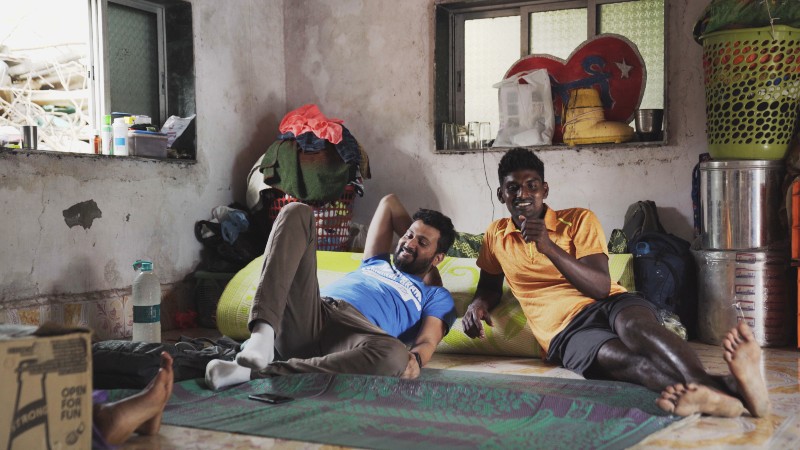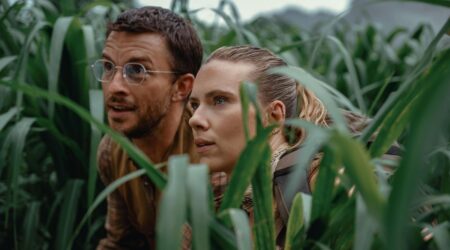
Recently, Indian non-fiction cinema has given us stellar works about environmentalism and the relationship between humans and nature. To the All That Breathes and The Elephant Whisperers duo, we can now add Against the Tide, a documentary directed by Sarvnik Kaur that takes us to Bombay to learn about the lives of two fishermen with different ideologies and social statuses.
Kaur follows Rakesh and Ganesh, two best friends and fishermen that belong to the Koli community, as they try to make a living in an increasingly difficult industry. On the one hand, Rakesh has few resources and uses his father’s old boat to go fishing in calm waters that seem to have more garbage than fish; he is a man of faith who, pushed by his mother, follows the traditions of his people to do his work. On the other hand, Ganesh was educated in Scotland and has more resources, so he relies on modern technology to go out into the deep sea. However, between loans and diminishing income, he is soon tempted to dabble in practices that are harmful to the sea.
This is an observational documentary that allows us to understand the increasing difficulties faced by the Koli community to maintain their way of life: in addition to the displacement caused by human greed, they also face climate change that threatens to devour their land. For many of them, it seems inevitable to abandon their homes and, possibly, their traditions that, among many things, are very important to combat climate change.
Kaur uses the many intimate conversations between Rakesh and Ganesh to provide context and pinpoint the problems they face both financially and personally, as their friendship is tested by the growing disparity between their work ideologies. These moments, effectively edited into the narrative by Atanas Georgiev and Blagoja Nedelkovski, are the heart of the documentary. Ashok Meena‘s excellent photography lends a poetic touch to intimate conversations, and provides spectacle in the fishing scenes; one of them has a fascinating experimental touch that I would have liked to see again later in the doc.
The magnitude of the problems in this community is felt when Rakesh’s son falls ill and hospital bills start to pile. It is no longer just an uncertain future or “invisible” environmental damage: the economic problems caused by an increasingly difficult-to-maintain profession are already wreaking havoc.
Besides the family drama, the film does not provide great emotions because it does not need to, rather it communicates its environmental message through a series of small but significant moments that gradually and altogether portray a very complicated reality for the fishermen and the natural environment in which they make a living. Passive-aggressive conversations between Ganesh and his wife, self-reflections on karma, a dispute with a Port Authority official, and an unproductive day of fishing, to name a few.
Against the Tide is a brilliant and spiritual documentary that portrays our connection with nature through the lives of a community struggling to keep alive its traditions. Kaur uses a subtle and naturalistic approach to connect the desperate financial and personal situation of his subjects with the desperate situation that exists under the sea thus creating a memorable environmentalist warning.
Against the Tide is screening at the 2023 Sundance Film Festival in the World Cinema Documentary competition.
Against the Tide
TL;DR
Against the Tide is a brilliant and spiritual documentary that portrays our connection with nature through the lives of a community struggling to keep alive its traditions. Kaur uses a subtle and naturalistic approach to connect the desperate financial and personal situation of his subjects with the desperate situation that exists under the sea thus creating a memorable environmentalist warning.






